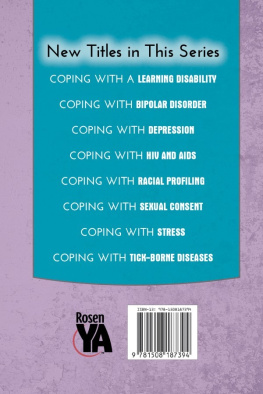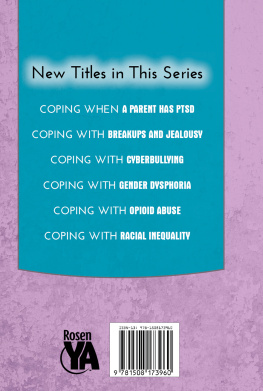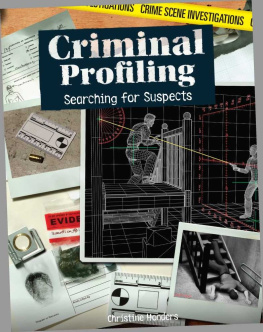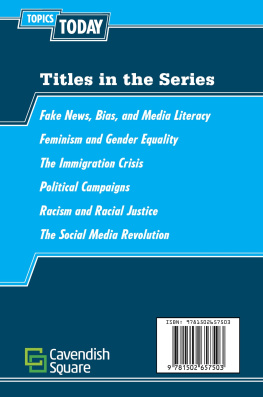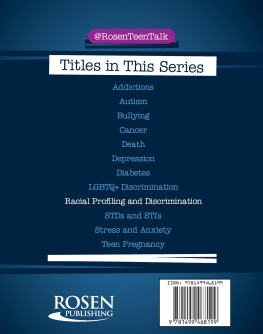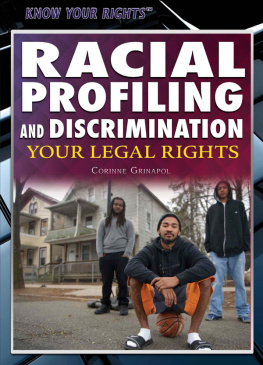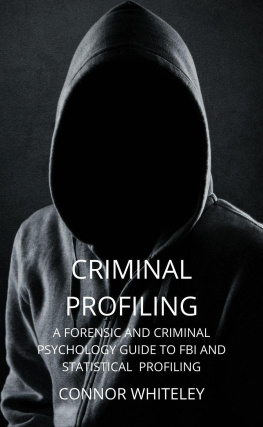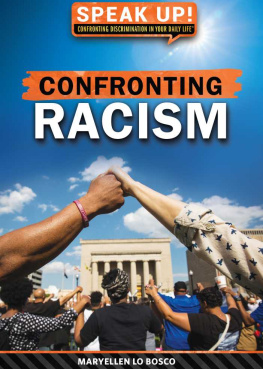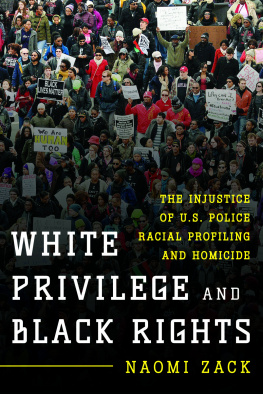
Published in 2020 by The Rosen Publishing Group, Inc.
29 East 21st Street, New York, NY 10010
Copyright 2020 by The Rosen Publishing Group, Inc.
First Edition
All rights reserved. No part of this book may be reproduced in any form without permission in writing from the publisher, except by a reviewer.
Library of Congress Cataloging-in-Publication Data
Names: Sandeen, Del, author.
Title: Coping with racial profiling / Del Sandeen.
Description: First edition. | New York: Rosen Publishing, 2020. | Series: Coping |
Includes bibliographical references and index.
Identifiers: LCCN 2018049156| ISBN 9781508187400 (library bound) | ISBN 9781508187394 (pbk.)
Subjects: LCSH: Racial profiling in law enforcementUnited StatesJuvenile literature. | Discrimination in criminal justice administrationUnited StatesJuvenile literature. | RacismUnited StatesJuvenile literature. | United StatesRace relationsJuvenile literature.
Classification: LCC HV7936.R3 S26 2020 | DDC 363.2/308900973dc23
LC record available at https://lccn.loc.gov/2018049156
Manufactured in the United States of America
For many of the images in this book, the people photographed are models. The depictions do not imply actual situations or events.
CONTENTS
INTRODUCTION
I n December 2012, near Ferguson, Missouri, police officers pulled over an African American man named Arnold Cole. According to an article by Tony Messenger and Matt Sullivan in the Guardian, officers told Cole that his license plate bulb wasnt working. Cole was frustrated that such a minor issue led to the stop. He told the officers this. Thats when they yelled at him to get out of his truck. Before Cole was able to open his door, one officer tried to yank it open. When he was unable to open it, the officer said hed break the window with his baton.
Cole got out of his truck. The officer stood there with his gun aimed at Coles chest, his finger on the trigger.
Cole put his hands up and his phone fell out of his pocket. He bent down to pick it up. One officer handcuffed him. They also called for a police dog, which searched the vehicle.
After a search, the officers found nothing.
However, the officers arrested Cole. They said he had not obeyed a lawful order. Cole was at the police station for twenty-four hours. He wasnt allowed to make any phone calls until the next morning.
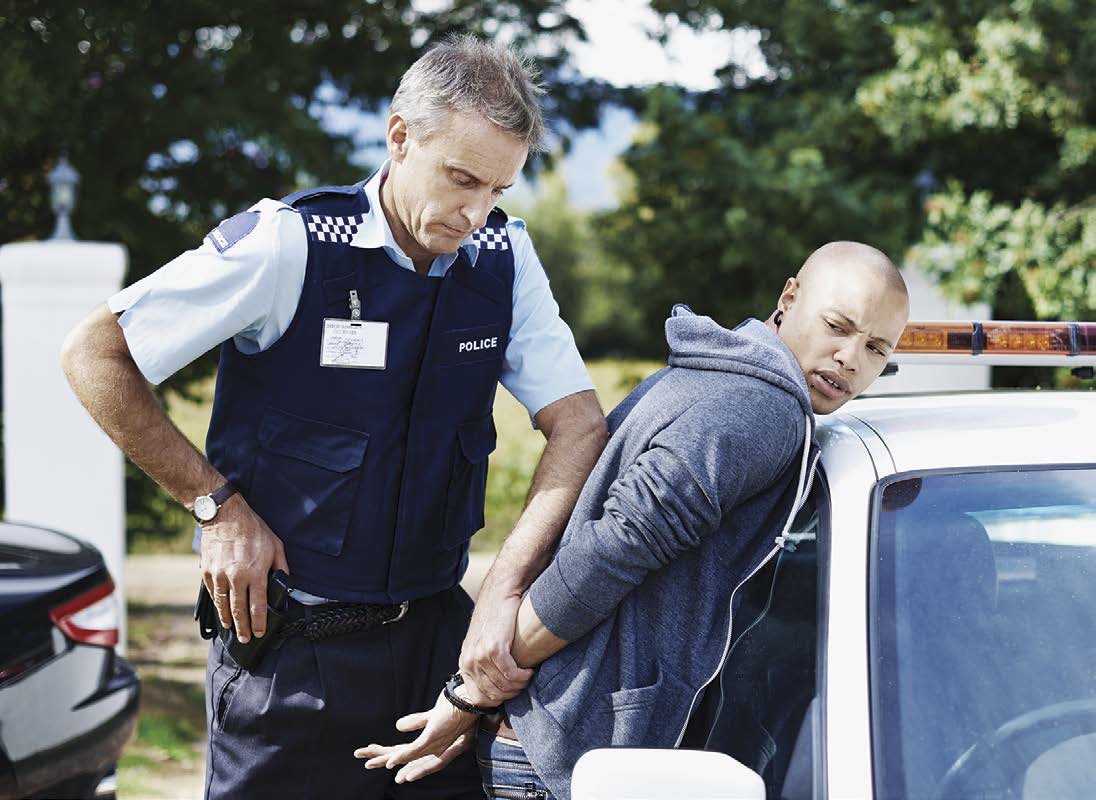
Being pulled over by police is an all-too-common situation for many black and brown men across America. Theyre more likely to be subjected to racial profiling, harassment, and arrest.
After Cole was released, he hired a lawyer. Cole knew he hadnt done anything wrong.
His attorney asked to see the police dashcam video, which would have recorded the encounter, but the department refused. Coles lawyer filed an appeal to have the charges dismissed. The police wouldnt back down from the tickets they gave him for the window tint and the lightbulb. Cole contacted a local news station and newspaper. He was ready to contact the US Department of Justice as well as the American Civil Liberties Union (ACLU). The ACLU is a legal organization that works to protect and preserve Americans rights. However, his lawyer told him to wait before getting the government and the ACLU involved. After more than a year, Coles case finally came to an end.
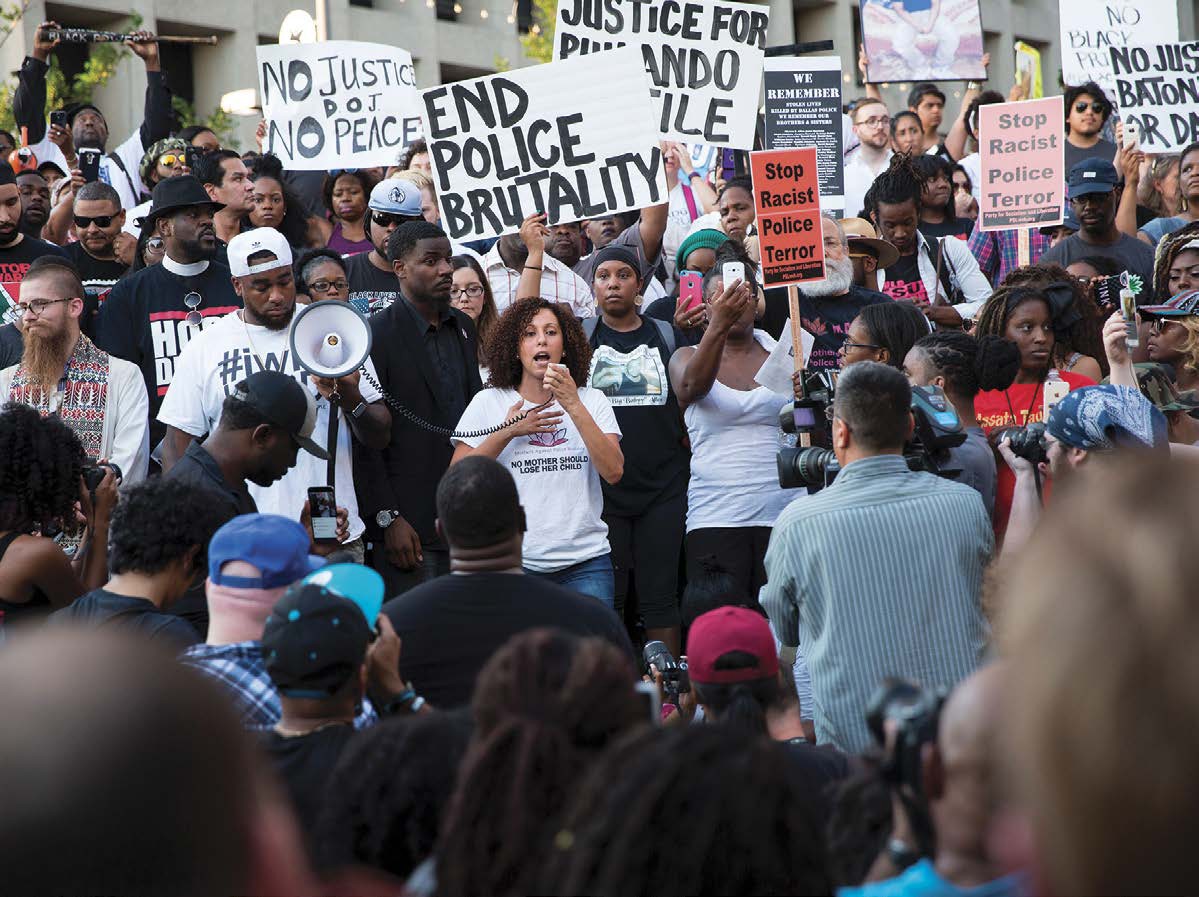
Protests are nothing new in American society. In the wake of high-profile police shootings of unarmed African Americans, more people of all colors are making their voices heard.
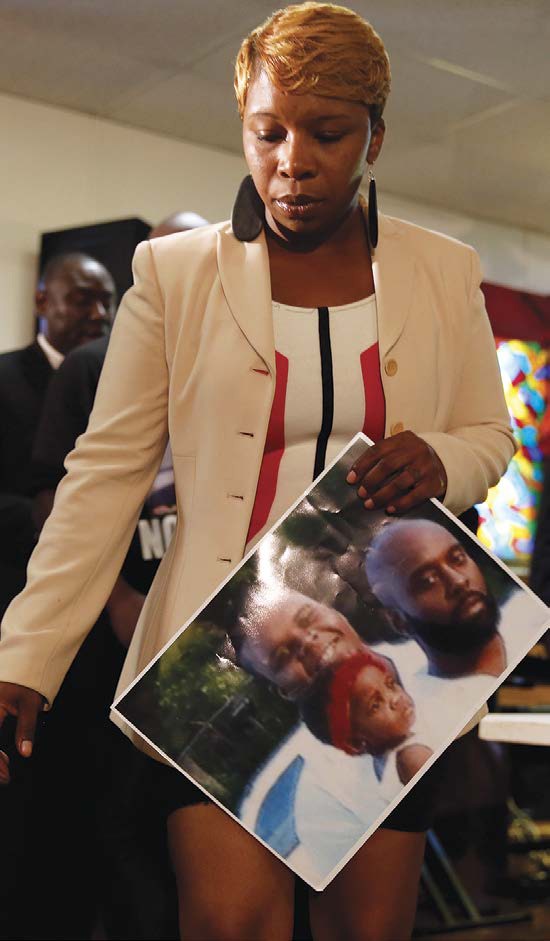
Michael Browns mother, Lesley McSpadden, at a news conference in Jennings, Missouri, days after her son was fatally shot by a white police officer. The officer was not charged with a crime.
Many black men like Cole know how it feels to get pulled over for minor (sometimes nonexistent) offenses. To have to deal with police who harass and threaten them. When the police target people based solely on the color of their skin, thats racial profiling.
Cole knows that his story could have had a tragic ending. Less than two years later, in August 2014, a white police officer fatally shot Michael Brown in Ferguson.
It can be hard to find statistics on racial profiling. Numbers on racial profiling mainly come from investigations and research. Research supports that African Americans are more likely to be victims of racial profiling, especially black men. But Hispanics, Asians, and Native Americans are also subject to this type of discriminatory practice.
If you ever believe youve been racially profiled, youll feel a lot of emotions. You might want to know what you can do about it. This book will show you how to cope with racial profiling. It will also show you how to react in positive, productive ways. If enough people come together to fight this injustice, racial profilingand all the bad consequences of itcan finally come to an end.
CHAPTER ONE
When People Use Race to Judge
T he world is made up of many races and ethnicities. Some nations are very homogenous. This means that most of their citizens share many physical characteristicsthey look alike. Other countries, like the United States, have a rich history made up of different cultures. Unfortunately, not everyone appreciates such diversity. Some people make judgments about others without knowing them.
What happens when authority figures make race-based assumptions about certain groups of people? What happens when police think certain groups are more likely to be criminals? Thats racial profiling.
What Is Racial Profiling?
Racial profiling is what happens when you assume things about someone based on that persons race, ethnicity, nation of origin, or religion. Profiling often occurs in the legal system. Some police officers take part in this type of discrimination.
The law doesnt always treat everyone equally. Although justice is supposed to be blind, meaning that everyone is judged the same, many people are not. According to 2016 Federal Bureau of Investigation (FBI) Crime in the United States statistics, black and brown people are arrested in disproportionate rates, or more often, compared to white people. They also get longer jail sentences than white people. This happens even when they commit the same crime. They might also have a similar criminal history. Its especially true for drug offenses.
In the 1990s, the Maryland State Police had to adopt a nondiscrimination policy. This was the result of a civil rights lawsuit. Before the lawsuit, state police sent out a report to officers. The report said that black people were bringing a lot of crack cocaine into the state. The report listed several roads the drug traffickers were supposed to be using. Due to this, police focused more on black drivers driving on those roads, although in reality people of all races traveled those same streets. Officers thought that many of the people they stopped were criminals.
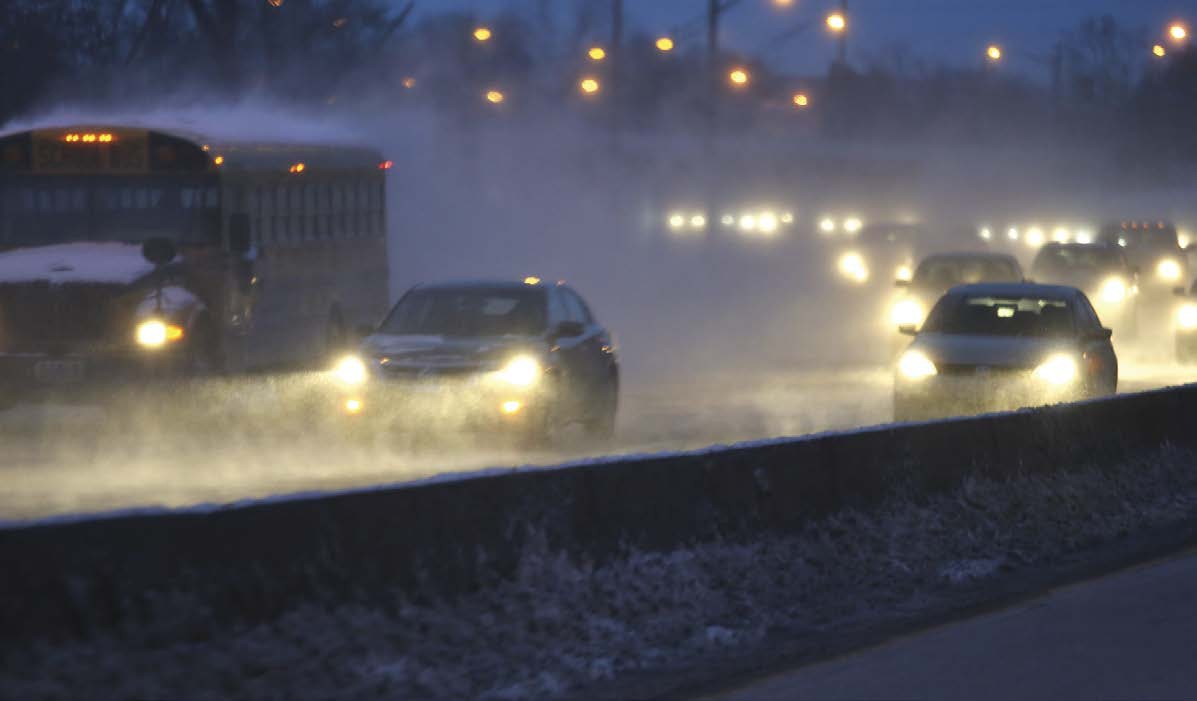
When police officers stop minority drivers more than white driverseven though drivers of all races commit offenses equallythis is a form of racial profiling.
Next page
